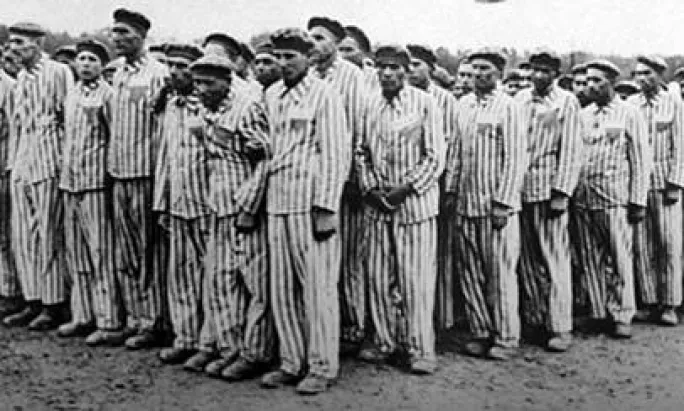Schoolchildren lack basic Holocaust knowledge, report finds
Large numbers of schoolchildren have no idea how many people were killed during the Holocaust, who carried out the killings or where they took place, a government report has found.
One in 10 secondary pupils thinks that fewer than 100,000 Jews were killed in the concentration camps. And three-quarters believe that the Holocaust was exclusively carried out by Hitler and the Nazis, with no acknowledgment of the hundreds of thousands of European citizens complicit in the genocide.
The report was released today to mark Holocaust Memorial Day, and the 70th anniversary of the liberation of Auschwitz-Birkinau concentration camp. It draws on the findings of a survey of 8,000 secondary pupils, conducted by the UCL Centre for Holocaust Education, in London.
More than three-quarters of pupils had learnt about the Holocaust at school, and more than half considered that they knew “quite a lot” about the Holocaust.
However, the report found: “Typically, secondary-school students appear to exhibit little understanding of why the Holocaust happened, with all victim groups being explained away by a general ‘racism’ or ‘prejudice’.”
A third of respondents hugely underestimated the numbers of Jewish people murdered during the Holocaust, with one in 10 stating that no more than 100,000 lives were lost.
And more than half were unable to identify where the Holocaust took place, believing that the death camps were in Germany. In fact, all six major death camps were in Poland, as were the greatest proportion of Jewish ghettos.
In addition, fewer than a third of pupils who had studied the Holocaust knew what the term ‘antisemitism’ meant. By contrast, more than 90 per cent knew what ‘homophobia’ meant. The report states: “While anti-Semitism alone is clearly not sufficient to explain the Holocaust, any explanation that omits this centuries-old prejudice is fundamentally flawed.”
The report, which was conducted by a commission appointed by the prime minister, found that many gaps in pupils’ knowledge result from a lack of sufficient teacher training and resources.
Academics from the Centre for Holocaust Education said: “If there is insufficient time to teach about the Holocaust, then teachers are forced to make difficult choices about what to include, and too often it is the voice of the victims that is lost; the complexity of the past tends to be grossly oversimplified; myths and misconceptions go unchallenged.”
An earlier survey of 2,000 teachers, also conducted by the Centre, found that more than three-quarters felt that they needed more professional training in the subject.
The commission calls for a new national Holocaust memorial and learning centre, which would give teachers access to a range of educational resources and educational materials. The centre would include a virtual-reality experience, recreating the schools or streets of 1930s Germany, and incorporating the testimonials of survivors. This “should categorically not be used to shock people with disturbing experiences of the ghettos or camps,” the commission added.
The new centre would also work with schools, helping to promote high-quality Holocaust education, and targeting areas in the country where this is particularly poor.
The UCL Centre for Holocaust Education has also offered a sample curriculum, helping teachers to tackle the Holocaust from Key Stage 2 through to the end of secondary school. At the moment, Holocaust education is compulsory only at Key Stage 3, though there are opportunities to study it at all other stages of primary and secondary education.
“The Commission is deeply conscious of the challenges of engaging young children in such an horrific subject,” the report states. “But, given that many will encounter stories about the Holocaust away from the classroom, it is important that teachers have the resources to address this subject in an age-appropriate way, to prevent misconceptions.”
Read the full report here.
Related stories:
How do you teach about the Holocaust? - 21 January 2015
Auschwitz visit for every school - 11 May 2008
Gove: ‘Holocaust Educational Trust needed now more than ever’ - 9 September 2014
Keep reading for just £1 per month
You've reached your limit of free articles this month. Subscribe for £1 per month for three months and get:
- Unlimited access to all Tes magazine content
- Exclusive subscriber-only stories
- Award-winning email newsletters




